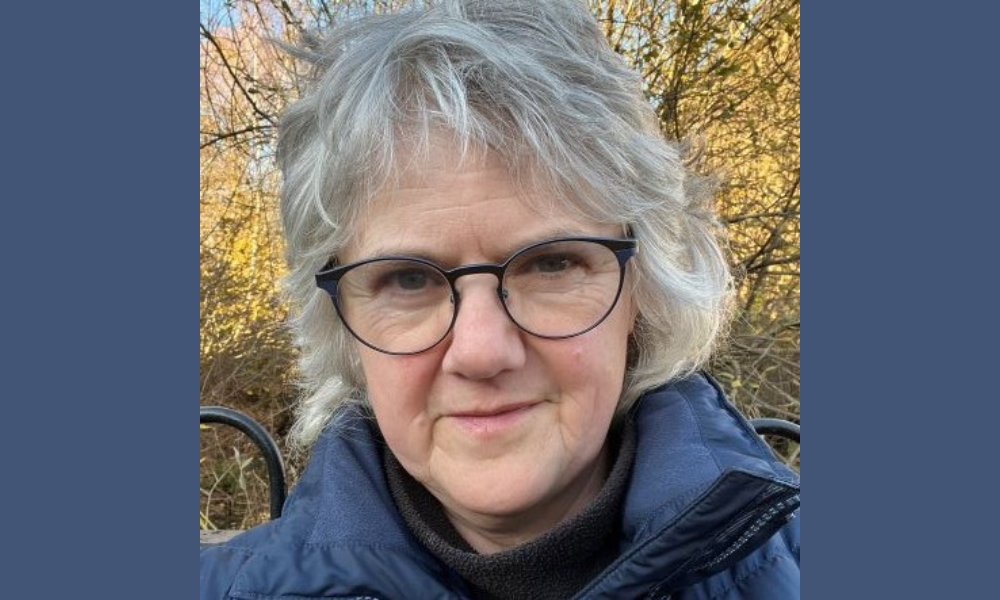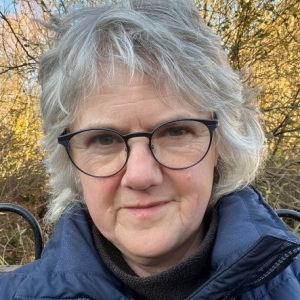Researcher Spotlight: Kim Polgreen
Associated Sprints
Recent News
- From beans to minerals: the new projects getting science into policy
- Hunger on our doorstep
- Place-based working to meet national well-being and sustainability goals

Kim Polgreen is a researcher on the Sprint investigating, “Is Nature a policy solution to mental health in schools?”
I became passionate about nature when I was six. I went to a little village school in a Victorian school house with one room, a high ceiling and a huge arched window. I remember everyone pausing their activities for a moment as a kestrel, hovering over the playground, was framed in that window. I was hooked.
I followed that passion for the natural world, doing a degree in biology and biochemistry, and then a DPhil in Biochemistry at Oxford, fascinated by how life works. During that time, mixing with students and scientists in other disciplines, I also came to understand the threat of the emerging climate and nature crisis and realised that protecting what I loved was where my passion lay. I changed focus, and after an MSc in Environmental Change and Management, I worked on environmental strategy and policy in business and consultancy for 10 years.
Another shift came when I had my son, moved back to Oxford, and took over a family business in the education sector, working with teachers from schools across the world, and meeting thousands of teenagers. The dual exposure to the world of education through my son and his friends as they grew up, and through the education business, added another passion to my life – seeing the world through the eyes of young people and appreciating the challenges they face: in the education system, in a society that puts pressure on them but doesn’t appreciate them, and with the powerless anxiety of watching the, by now much more evident, climate and nature crisis unfold.
In 2016 I set up an Environmental Summer School for 15-18 year olds, with the support of the Environmental Change Institute, at Oxford. I enlisted researchers from the department to divert them from eco-anxiety by inspiring the teens about environmental challenges, the solutions being developed, and the roles they could play in their future careers.
One of the trips we did on the summer school each year was to Wytham Woods, the University’s research woodlands. I got to know the Conservator, Nigel Fisher, and the Woods, and learned how to use the Woods as a place to teach. Post pandemic, Nigel offered me the position of Youth Educator in Residence at Wytham. The summer school started up again, but now in tents and the beautiful Chalet at Wytham, and we went on to develop a whole education programme, bringing hundreds of school students, scouts, refugees, teachers, and university students to enjoy the Woods and learn about nature and the solutions to our challenges. In 2022 we were runners up in the Vice Chancellor’s Sustainability Awards.
In 2023 I became an Honorary Norham Fellow at the OU Department of Education and worked with another fellow and local teachers to set up the Sustainability Team for the Oxford Education Deanery. We run webinars and live events for teachers and education leaders, including several on nature education and wellbeing. I was also given the role of Community Outreach Officer at the Leverhulme Centre for Nature Recovery at Oxford which has enabled me to expand my knowledge and network. When the Estates Department closed down our education work at Wytham in 2024, I shifted my educational efforts into school grounds, and in particular to a local secondary school where I have worked with the teachers to establish a Young Ecologists Club and an Ecology Garden for use in education and wellbeing by the school, and as an inspiration for other schools to follow suit. We are using the garden for teacher training and working towards delivering the new GCSE in Natural History.
I met Katrin Wilhelm at Wytham, and we had many conversations about nature, climate, education and wellbeing. Eventually we worked together on a proposal for the Sprint “Is Nature a policy solution to mental health in schools?” and I found myself back in research. I feel that if I can use my experience, knowledge and connections to help create evidence that there is a strong rationale for nature in schools I will have served both the things I care passionately about – nature and the lives of children and young people.
The Sprint has been a fantastic experience. I have particularly enjoyed the Agile training courses and getting an insight into the Agile process. I am really interested to see how the process of feeding research into environmental policy in real time will develop.



